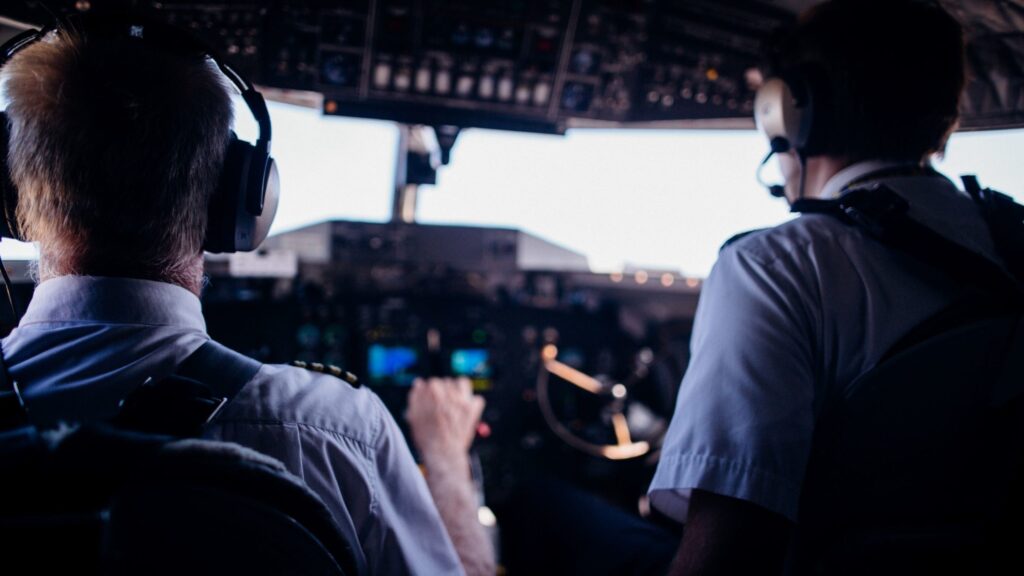Professionals are under a lot of stress normally and their stress level has increased significantly over the past year and a half, during the pandemic. Two areas in particular, aviation and healthcare, are seeing high burnout rates. Burnout in physicians and pilots has some surprising similarities.
What is Burnout?
Burnout can happen when you’re overworked, overstressed, or just don’t have the passion you once had for your job. It can be particularly dangerous for professionals such as physicians and pilots, whose responsibility is to care for others’ health and safety. When you are burned out, you lose interest and your ability to do the work effectively can suffer greatly.
You may become burned out when you push yourself too hard or when your position begins to take priority over your self-care and your personal relationships with others, such as your family members. Burnout was first used in the 1970s to describe a gradual emotional depletion and loss of motivation. Most experts agree that burnout consists of two main symptoms, a high level of exhaustion and a distant or cynical attitude toward work, often exhibited as disengagement.
Burnout Rates in Physicians and Pilots
The rates of burnout found in studies of both physicians and pilots are very similar. Pilots, in particular, have stringent requirements for rest and work hours, yet their burnout rate was found to be at 40%. Physicians, who have certain restrictions as residents but who are typically able to control their own hours in private practice, have a burnout rate of about 42%.
FAA rules restrict pilots to a maximum of 60 hours of flight duty per week (a consecutive 7-day period). They must have a rest period of 10 hours with no allowable reduction, and they must have the opportunity to get 8 hours of sleep during their rest break. Pilots must be off duty a minimum of 30 consecutive hours each week.
A medical resident is restricted to an 80-hour weekly limit averaged over 4 weeks. They are required to have an adequate rest period consisting of 10 hours of rest between duty periods. Residents are to have one day in seven free from patient care and educational obligations, as averaged over four weeks. They can be on call no more than once every three nights, as averaged over four weeks.
Practicing physicians have no such restrictions and have more leeway as to the hours they work and the time they allow themselves to rest. Even so, their burnout rate is basically the same as that of pilots. In the study of physician burnout, it was found that 51% of women and 36% of men reported being burned out as physicians. Of those, 79% reported that their struggles began before the onset of the pandemic. They cited reasons such as:
- Too many bureaucratic tasks – 58%
- Spending too many hours at work – 37%
- Lack of respect from employers, colleagues, or staff – 37%
In addition, 47% said burnout had a strong/severe impact on their life.
Preventing Burnout
As a physician or a pilot, you have the responsibility of ensuring the health and safety of those individuals in your care. When you are exhausted, mentally and physically, and have lost interest in what you are doing as a professional, it can have a tremendous impact on your work and on your life in general.
It is important to take steps toward better self-care for your own mental and physical health. You may not be able to get rid of all the stress in your life, but you can find healthier ways to manage it. Take some time to get some exercise. Spending long days at work can put stress on your body as well as your mind. Short walks throughout the day can help, if you don’t have time for a full workout session regularly.
In addition, you will need to eat a balanced diet, especially one that includes omega-3 fatty acids which can be a natural antidepressant. Fish, walnuts, and flaxseed oil are good for you and can give your mood the boost you may need. Likewise, getting enough sleep is essential for your overall well-being. Try to establish a relaxing bedtime ritual and put away your cell phone so you can get the rest you need.
When burnout becomes an issue for you as a physician or a pilot, it may be time to reach out for help. Talk to a professional mental health counselor who can guide you through the healing process so you can rediscover your passion for your work and for your life.
Outpatient Treatment for Professionals in Philadelphia
At Providence Treatment, we understand that, as a professional, you experience chronic stress. Stress and burnout can often lead to substance use. When your drug and alcohol use have become excessive, it is time to get help for your mental and physical health. When you are ready to get outpatient addiction treatment in Philadelphia, we are ready to help you. Our expertise is in serving high-profile clients and licensed professionals like you.
Don’t let addiction to drugs or alcohol take over your life. You can overcome addiction with outpatient treatments at Providence Treatment. If you need help getting clean, then contact us at 484.469.9592, and you can begin your recovery as soon as possible.









